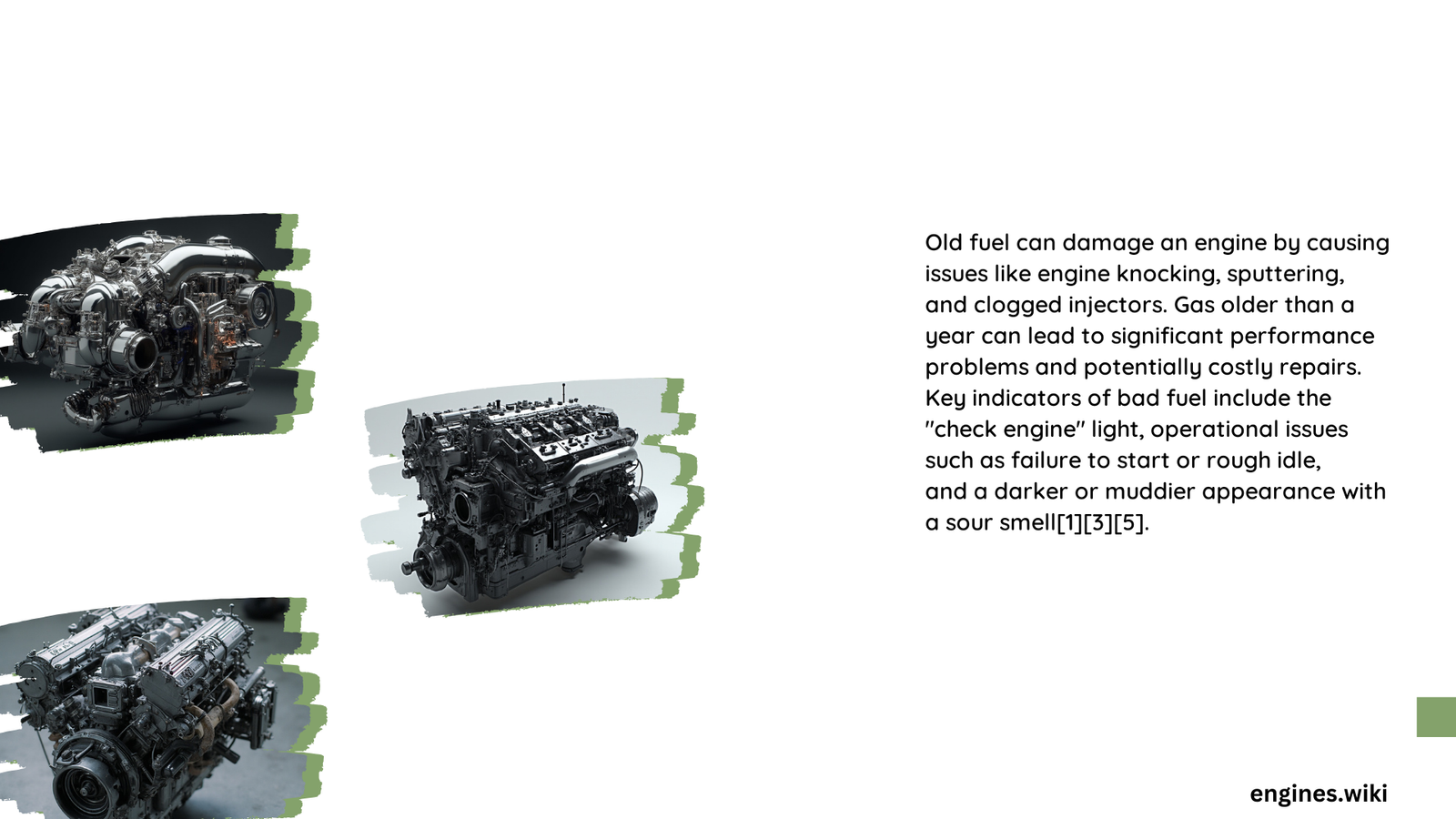Old fuel can silently wreak havoc on your vehicle’s engine, transforming from a critical power source to a potential mechanical nightmare. Gasoline undergoes significant chemical changes over time, creating a complex web of risks that can compromise engine performance, efficiency, and longevity. Understanding these risks is crucial for preventing expensive repairs and maintaining optimal vehicle health.
What Happens When Fuel Becomes Old?
How Does Fuel Chemical Composition Change?
Gasoline is a complex mixture of hydrocarbons that begins deteriorating immediately after production. Key chemical transformations include:
- Molecular Breakdown: Volatile compounds evaporate, reducing fuel efficiency
- Oxidation Process: Hydrocarbon chains break down, forming gummy residues
- Ethanol Interaction: Increased water absorption leads to potential phase separation
What Are the Primary Risks of Using Aged Fuel?
| Risk Category | Potential Damage | Estimated Cost |
|---|---|---|
| Fuel System Corrosion | Rust in fuel lines | $500 – $2,000 |
| Injector Clogging | Reduced fuel flow | $300 – $1,500 |
| Engine Performance Decline | Power loss | Varies |
Can Old Fuel Cause Immediate Engine Problems?
Aged fuel can trigger multiple immediate and long-term engine complications:
- Reduced Combustibility
- Lower energy density
- Incomplete fuel burning
-
Increased carbon deposits
-
Injector and Carburetor Blockage
- Restricted fuel flow
- Uneven fuel distribution
-
Potential engine misfires
-
Corrosion Risk
- Water contamination
- Metal component degradation
- Accelerated wear on fuel system parts
How Long Before Fuel Becomes Problematic?

Fuel Degradation Timeline
- Gasoline (No Ethanol): 3-6 months
- Ethanol-Blended Fuel: 2-3 months
- Stored in Optimal Conditions: Up to 1 year
What Symptoms Indicate Fuel Degradation?
Recognizable signs include:
- Engine hesitation during acceleration
- Rough idling
- Increased fuel consumption
- Difficulty starting the engine
- Unusual knocking sounds
Prevention and Maintenance Strategies
How to Protect Your Engine from Fuel-Related Damage?
- Use fuel stabilizers for long-term storage
- Rotate fuel stock regularly
- Store fuel in sealed, approved containers
- Avoid purchasing from low-traffic gas stations
- Use high-quality fuel with minimal ethanol content
Expert Recommendations
Professional mechanics suggest:
– Drain fuel older than 30 days
– Use fuel stabilizers for seasonal vehicles
– Perform regular fuel system inspections
– Consider professional fuel system cleaning annually
Conclusion
Understanding fuel degradation is crucial for maintaining your vehicle’s performance and preventing costly repairs. Regular maintenance, proper storage, and awareness of fuel quality can significantly extend your engine’s lifespan.
